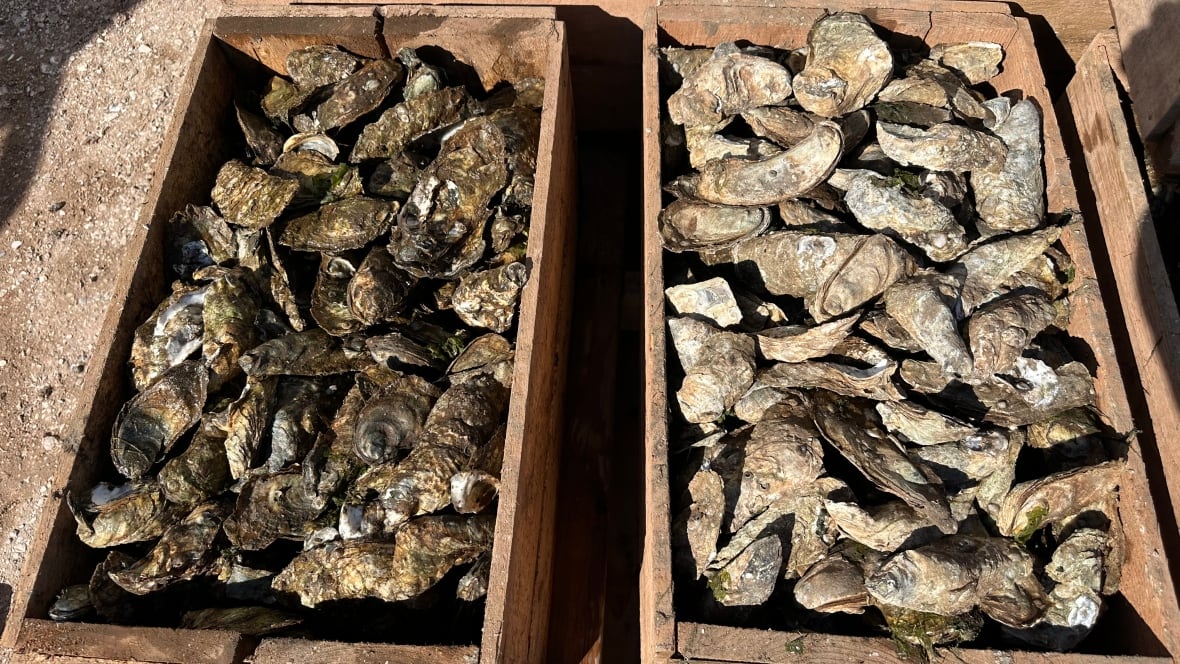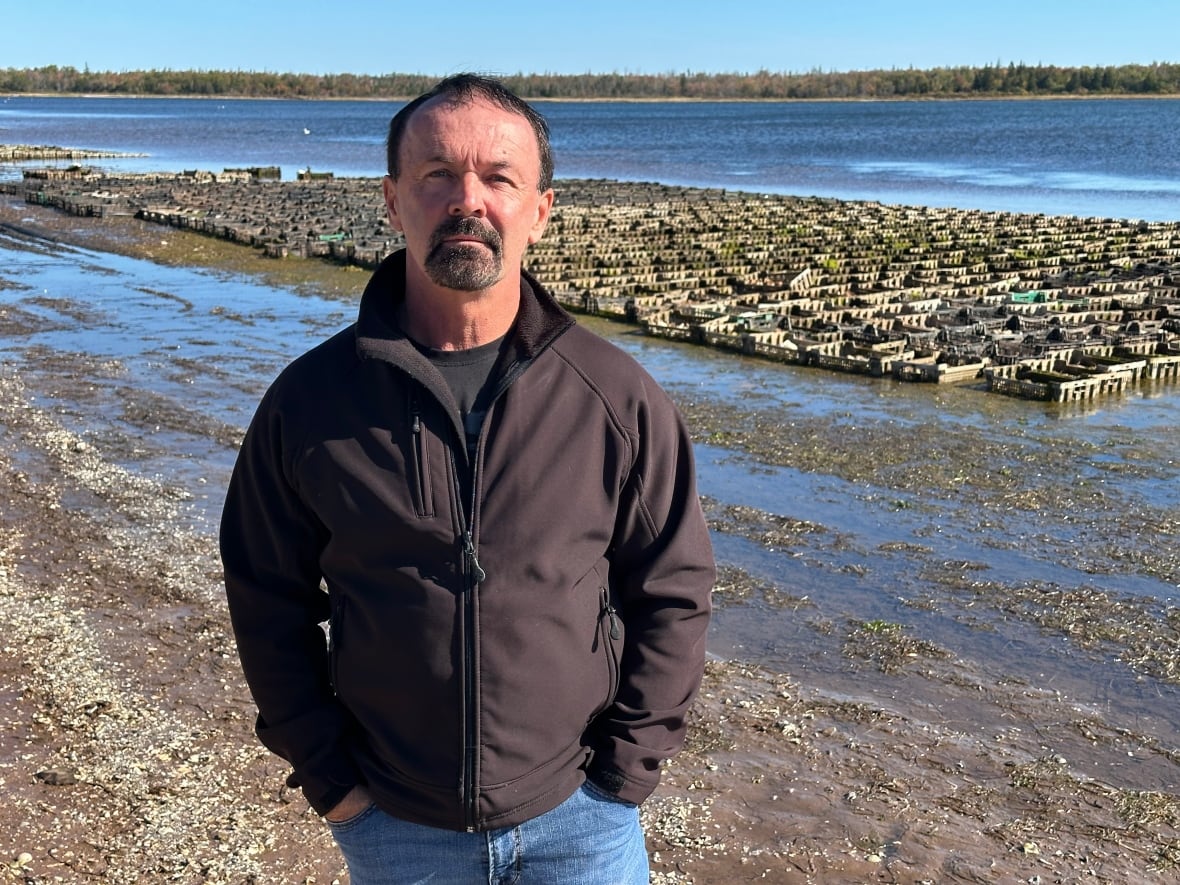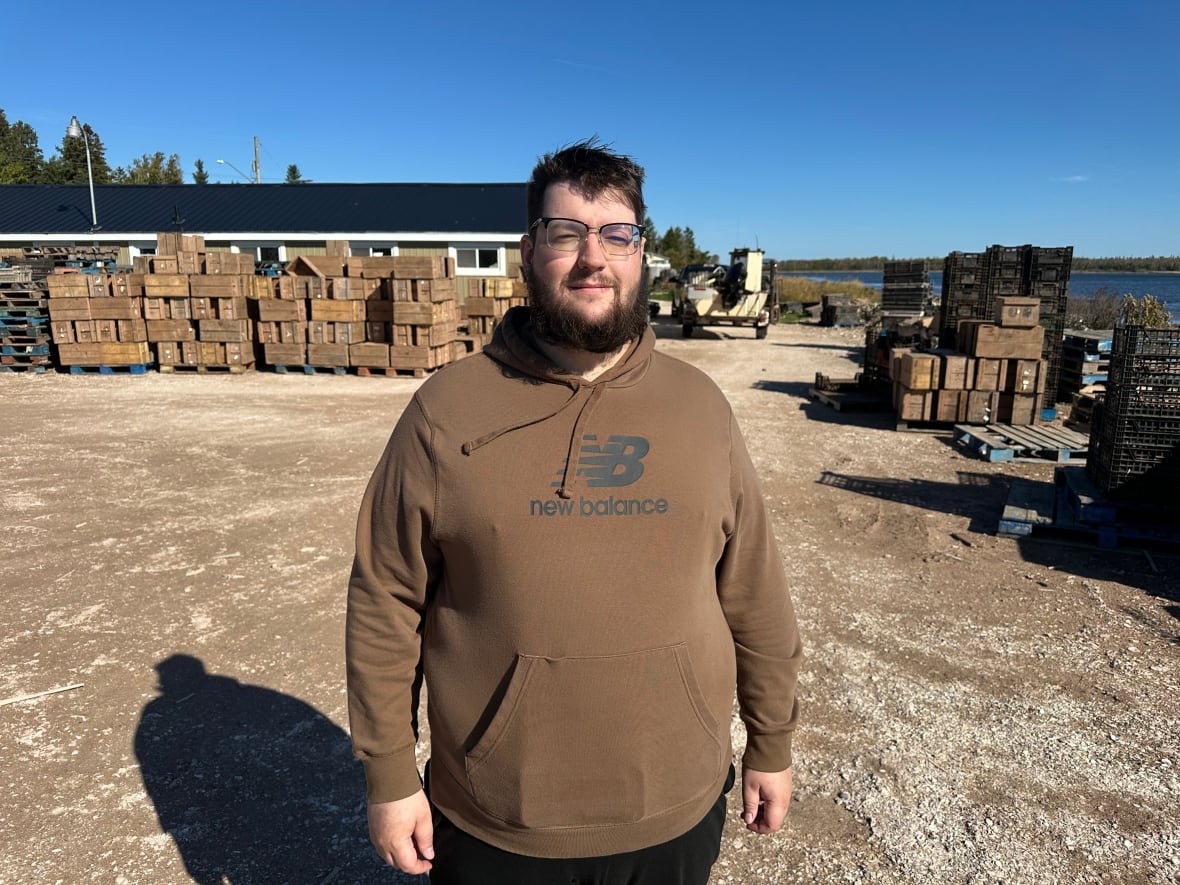P.E.I. oyster fishers ‘feeling pain’ as companies stop buying due to risk from MSX
![]()
This article was written by Jenna Banfield and originally published by CBC News on October 7, 2025 at 6:00AM ADT. We are sharing the full text here for reference. All rights remain with the original publisher.
After 14 months of waiting, fishers say they need government support now

P.E.I.’s wild oyster season is set to close November 30th, but some fishers are stopping early, saying they have no choice when buyers stop buying. (Aaron Adetuyi/CBC)
Some P.E.I. companies say they are going to stop buying oysters, and others are putting limits on how many they will buy, because of the threat of MSX.
The parasite is harmless to humans, but deadly to oysters — which are dying while companies are waiting to sell them.
The move to stop or limit buying has many Island oyster fishers expressing frustration about lack of support, and worrying they will not make enough money to qualify for employment insurance over the winter.
“It broke my heart cause I’ve seen people in the water crying, said ‘how can we get our stamps? We don’t have our stamps, going to be a long winter,'” said Robert Bernard, a Percival River oyster farmer who’s been in the business for about 12 years.
“I said I know what it’s like cause I said I’m not going to qualify this year.

Bernard is among the oyster fishers on P.E.I. who are expressing fear and frustration over the fallout from MSX, including high mortality rates for oysters, and buyers setting limits. (Aaron Adetuyi/CBC)
Bernard said a significant number of oysters were dying throughout the season, which has led him to stop fishing early.
Last year, he said he grossed a total of $160,000 by the end of August. He said this year that number is down to $6,200.
“I never thought I’d see this in my life,” Bernard said. “I’m ashamed to say, but in the last month or so, I didn’t know if I should buy gas to go to work or buy groceries, it’s coming down to that now.”
“We’re all in survival, we’re trying to survive.”
‘We need immediate support’
Burleigh Bros. Seafoods, based in East Bideford in Western P.E.I., recently announced they will be suspending oyster purchases because there’s too much risk due to the high mortality rates from MSX.
“It’s hard to… absorb all that risk when you don’t know what’s going to happen, you don’t know if all those oysters are going to die,” said Thomas Burleigh, the company’s general manager.
“A lot of people are feeling a lot of pain because of that. And it’s a shame that we have to take those steps,” Burleigh said. “It’s just frustrating. Like we’re trying to do what we can and we feel like there’s nobody out here to support us.”
Burleigh said his small family business is feeling a lot of pressure.
“There’s only so much we can do, like, you know, it’s just reaching that point where it’s becoming unsustainable for us without some form of support.”

Burleigh said he would like to see assistance from the government to help, among other things, ensure fishers can qualify for employment insurance. (Aaron Adetuyi/CBC)
Burleigh says he would like to see some form of relief from the provincial and federal governments for both fishers and businesses.
He would also like to see more funding for research to develop a seed that is resistant to MSX, which was first discovered in P.E.I. waters in July 2024. One year later, dermo, another highly damaging disease to the mollusks, was discovered in Egmont Bay.
“We need immediate support in research and development, we need support in financing to make sure that we all don’t go under,” Burleigh said. “We need support in areas like employment insurance to make sure that fishers have enough to qualify.”
Burleigh said it feels like everybody has turned a blind eye to what the industry is going through.
“We’re at the point where, you know, our, our bank accounts are getting low… If we stop buying… then hundreds of people are gonna, you know, they’re gonna go bankrupt,” he said.
“This whole community is gonna collapse. That’s what’s gonna happen. So, you know, like there’s only so much we can take. And if the government doesn’t step in, we can’t save the industry, right?”
Wild oyster season is set to close on November 30th.
Source: CBC News. Original article available here.
Recent News
This article was written by Elizabeth McMillan and originally published by CBC News on October 19, 2025. We are sharing…
This article was written by Jenna Banfield and originally published by CBC News on October 7, 2025 at 6:00AM ADT.…
This article was written by Melissa Heald and originally published by West Prince Graphic on October 1, 2025. We are…
This article was written by Stu Neatby and originally published by The Guardian on September 29, 2025. We are sharing…
This article was written by Marilee Devries and originally published by CBC News on September 25, 2025 at 9:27PM ADT.…
This document was originally circulated by the CFIA on August 28th, 2025. We are sharing the full text here for…
This article was written by Marilee Devries and originally published by CBC News on September 2, 2025 at 2:56PM ADT.…
This article was written by Maria Sarrouh and originally published by CTV News on August 16, 2025 at 5:00AM EDT. We…
This article was originally published by GenomeAtlantic in July, 2025. We are sharing the full text here for reference. All…
This article was written by Carolyn Ryan and originally published by CBC News on July 04, 2025 at 8:10PM ADT.…
